-
 Bitcoin
Bitcoin $114400
0.68% -
 Ethereum
Ethereum $3550
2.48% -
 XRP
XRP $3.001
4.99% -
 Tether USDt
Tether USDt $0.9999
0.01% -
 BNB
BNB $757.6
1.46% -
 Solana
Solana $162.9
1.07% -
 USDC
USDC $0.9998
0.00% -
 TRON
TRON $0.3294
0.91% -
 Dogecoin
Dogecoin $0.2015
2.46% -
 Cardano
Cardano $0.7379
2.01% -
 Stellar
Stellar $0.4141
8.83% -
 Hyperliquid
Hyperliquid $37.83
-1.91% -
 Sui
Sui $3.454
0.76% -
 Chainlink
Chainlink $16.62
3.53% -
 Bitcoin Cash
Bitcoin Cash $554.6
2.84% -
 Hedera
Hedera $0.2486
3.91% -
 Ethena USDe
Ethena USDe $1.001
0.00% -
 Avalanche
Avalanche $21.95
3.34% -
 Toncoin
Toncoin $3.563
-2.85% -
 Litecoin
Litecoin $112.7
2.65% -
 UNUS SED LEO
UNUS SED LEO $8.977
0.13% -
 Shiba Inu
Shiba Inu $0.00001232
1.85% -
 Uniswap
Uniswap $9.319
2.93% -
 Polkadot
Polkadot $3.632
1.38% -
 Monero
Monero $307.2
2.36% -
 Dai
Dai $0.9997
-0.03% -
 Bitget Token
Bitget Token $4.340
0.91% -
 Pepe
Pepe $0.00001048
1.07% -
 Cronos
Cronos $0.1348
3.26% -
 Aave
Aave $261.5
1.93%
How do NFT Gaming Assets change the in-game economy?
NFTs revolutionize gaming economies by granting players verifiable ownership of in-game assets, enabling trading on external marketplaces and creating new revenue streams for developers; however, scalability, regulation, and market volatility pose significant challenges.
Mar 01, 2025 at 11:30 pm
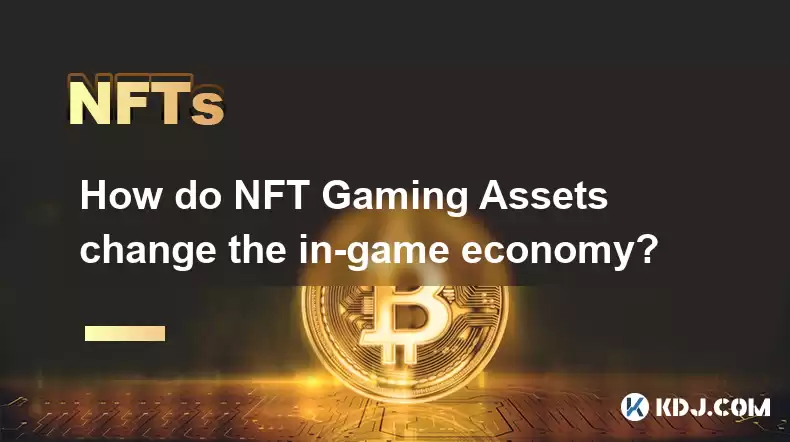
Key Points:
- NFTs introduce verifiable ownership and scarcity to in-game assets.
- This alters traditional game economies by allowing players to truly own and trade their items.
- NFT gaming assets create new revenue streams for developers and players.
- The integration of NFTs presents challenges related to scalability, regulation, and market volatility.
- The future of NFT gaming economies depends on addressing these challenges and fostering player trust.
How Do NFT Gaming Assets Change the In-Game Economy?
The integration of Non-Fungible Tokens (NFTs) into gaming is revolutionizing in-game economies, shifting power dynamics between developers and players and creating entirely new economic models. Traditional games often operate on a system where in-game assets are tied to the game itself; players don't truly own them. NFTs change this by representing ownership on a blockchain, providing verifiable proof of ownership. This fundamental shift has profound implications.
One significant change is the emergence of player-owned economies. Players can now buy, sell, and trade their NFT game assets on external marketplaces, creating a vibrant secondary market completely independent of the game developer. This empowers players, giving them control over their in-game investments and allowing them to profit from their time and skill. This stands in stark contrast to traditional games where items are often lost upon account deletion or game updates.
The introduction of scarcity is another key element. Unlike traditional games where developers can easily inflate the supply of in-game items, NFT games often have limited editions or unique attributes making certain assets highly valuable. This scarcity drives demand and creates a more dynamic and engaging market experience. The value of these assets isn't just determined by in-game utility, but also by their rarity and desirability within the community.
For game developers, NFTs open up new revenue streams. They can sell initial NFT drops, receive royalties on secondary market sales, and create new monetization opportunities through in-game events and expansions centered around NFT assets. This allows for more sustainable and potentially less reliant models on traditional microtransactions. However, it's crucial that developers implement these systems fairly to avoid exploiting players.
The integration of NFTs isn't without challenges. The high gas fees associated with some blockchains can create a barrier to entry for many players. The volatility of the cryptocurrency market also impacts the value of NFT game assets, creating uncertainty for players. Furthermore, regulatory uncertainty around NFTs and cryptocurrencies remains a significant concern.
Scalability and the Future of NFT Game Economies:
The scalability of blockchain technology is crucial for the long-term success of NFT gaming economies. Existing blockchains often struggle to handle the high transaction volumes associated with popular games. This leads to high fees and slow transaction times, hindering the overall user experience. Solutions like layer-2 scaling solutions and the development of new, more efficient blockchains are vital to address this issue.
The security of the underlying blockchain is paramount. Any vulnerability could lead to the theft or loss of valuable NFT assets, undermining player trust and damaging the entire ecosystem. Robust security measures and regular audits are essential to maintaining the integrity of these digital economies. Developers must prioritize security and transparency to build a sustainable and trustworthy environment.
Addressing Player Concerns:
Many players are concerned about the potential for scams and fraudulent activity in the NFT gaming space. The decentralized nature of the market makes it difficult to regulate, creating opportunities for malicious actors. To address this, platforms need to implement robust verification systems, and developers need to prioritize transparency and community engagement. Clear and accessible information about the rarity and value of assets is crucial to building trust and preventing exploitation.
The environmental impact of certain blockchains is another area of concern. Proof-of-work blockchains, which require significant energy consumption, are facing increasing scrutiny. The shift towards more energy-efficient consensus mechanisms, like proof-of-stake, is crucial for the long-term sustainability of the NFT gaming industry. Players are increasingly demanding environmentally responsible practices.
The Role of Interoperability:
The ability for NFT assets to be used across different games and platforms is crucial for the growth of the NFT gaming ecosystem. Currently, many NFT assets are locked into specific games, limiting their utility and value. The development of interoperability standards and protocols will allow for greater flexibility and create a more vibrant and dynamic market. This interoperability will enhance the overall player experience and unlock new possibilities for game developers.
Frequently Asked Questions:
Q: Are NFT gaming assets truly owned by players?
A: Yes, unlike traditional in-game items, NFTs represent ownership on a blockchain, providing verifiable proof of ownership that is independent of the game developer.
Q: How do I buy and sell NFT gaming assets?
A: NFT gaming assets are typically bought and sold on dedicated marketplaces, often integrated with the game itself or through third-party platforms. You'll need a cryptocurrency wallet and understanding of the process.
Q: What are the risks associated with investing in NFT gaming assets?
A: The value of NFT gaming assets is highly volatile and subject to market fluctuations. There's also a risk of scams and fraudulent activity, particularly on unregulated marketplaces.
Q: Are all NFT games the same?
A: No, NFT games vary significantly in their mechanics, tokenomics, and overall gameplay. Some are built on established gaming franchises, while others are entirely new concepts.
Q: What is the future of NFT gaming economies?
A: The future of NFT gaming economies depends on addressing the challenges of scalability, regulation, and market volatility, while fostering trust and transparency within the community. The success of the model hinges on user adoption and the development of more robust and sustainable systems.
Disclaimer:info@kdj.com
The information provided is not trading advice. kdj.com does not assume any responsibility for any investments made based on the information provided in this article. Cryptocurrencies are highly volatile and it is highly recommended that you invest with caution after thorough research!
If you believe that the content used on this website infringes your copyright, please contact us immediately (info@kdj.com) and we will delete it promptly.
- Cryptocurrency, Altcoins, and Profit Potential: Navigating the Wild West
- 2025-08-04 14:50:11
- Blue Gold & Crypto: Investing Disruption in Precious Metals
- 2025-08-04 14:30:11
- Japan, Metaplanet, and Bitcoin Acquisition: A New Era of Corporate Treasury?
- 2025-08-04 14:30:11
- Coinbase's Buy Rating & Bitcoin's Bold Future: A Canaccord Genuity Perspective
- 2025-08-04 14:50:11
- Coinbase's Buy Rating Maintained by Rosenblatt Securities: A Deep Dive
- 2025-08-04 14:55:11
- Cryptos, Strategic Choices, High Returns: Navigating the Meme Coin Mania
- 2025-08-04 14:55:11
Related knowledge
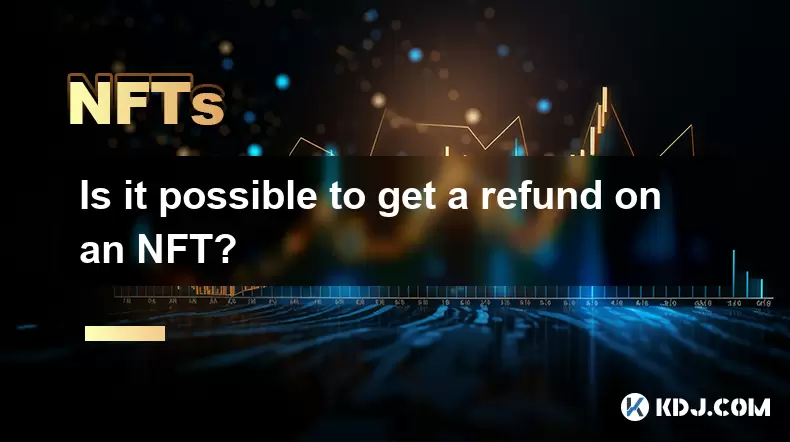
Is it possible to get a refund on an NFT?
Jul 21,2025 at 08:35pm
Understanding NFT Transactions and RefundsWhen you purchase an NFT (Non-Fungible Token), the transaction is typically recorded on a blockchain, making...
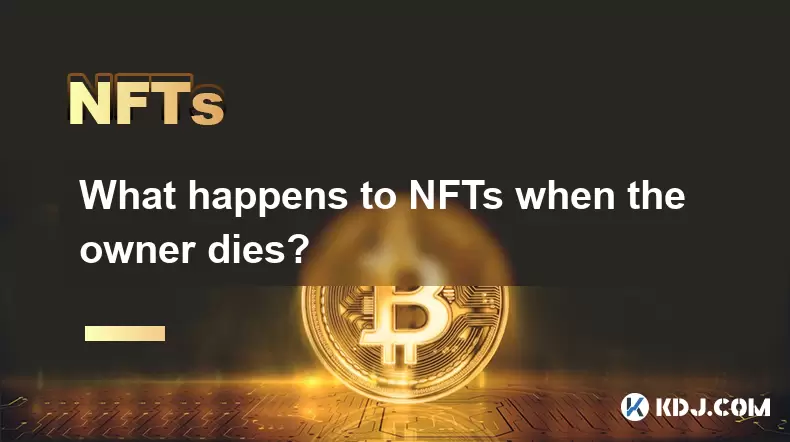
What happens to NFTs when the owner dies?
Jul 22,2025 at 02:43pm
Legal Ownership and Digital AssetsWhen an individual owns NFTs, the question of what happens to these assets upon their death is a pressing one. NFTs ...
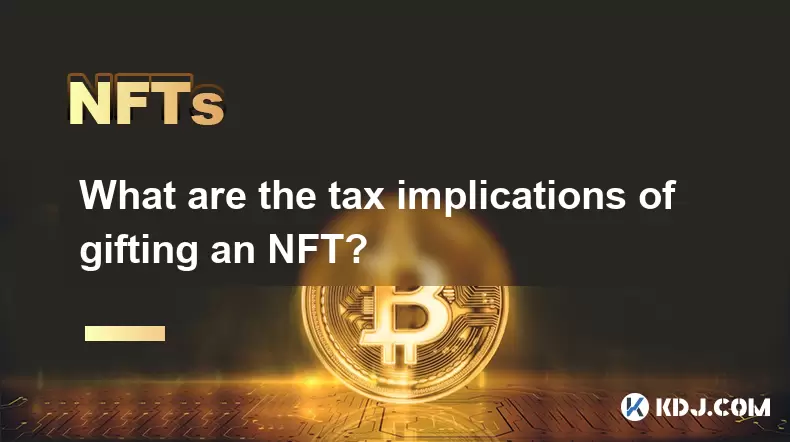
What are the tax implications of gifting an NFT?
Jul 19,2025 at 04:21am
Understanding the Basics of NFT GiftingGifting a Non-Fungible Token (NFT) involves transferring ownership from one individual to another without recei...
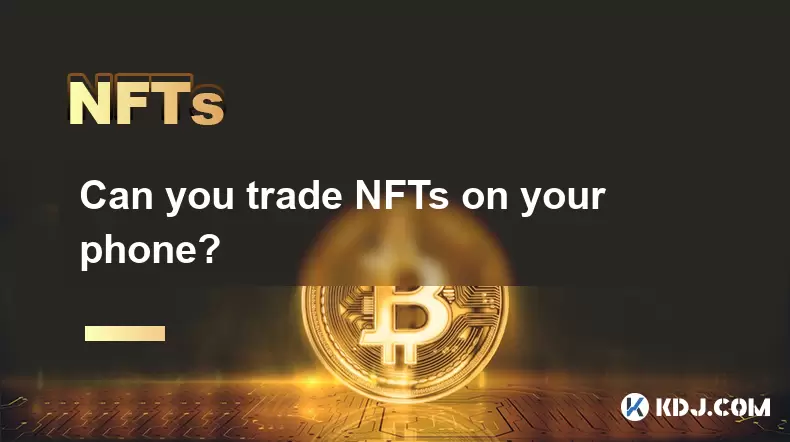
Can you trade NFTs on your phone?
Jul 18,2025 at 04:29am
Trading NFTs on Mobile DevicesYes, you can trade NFTs on your phone, and the process has become increasingly streamlined thanks to a variety of mobile...
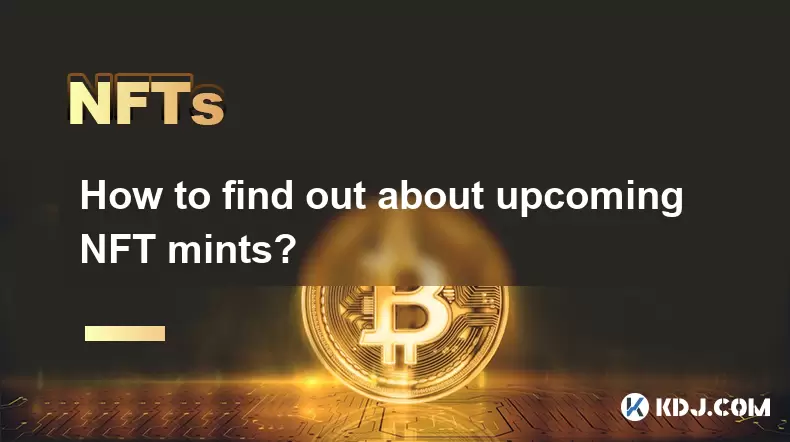
How to find out about upcoming NFT mints?
Jul 18,2025 at 11:50am
Exploring NFT Minting OpportunitiesUnderstanding the landscape of upcoming NFT mints is crucial for collectors, investors, and creators who wish to st...
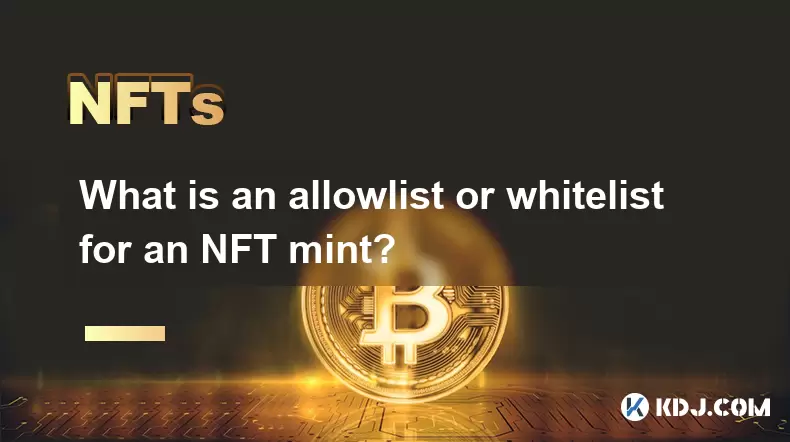
What is an allowlist or whitelist for an NFT mint?
Jul 20,2025 at 07:14pm
Understanding the Concept of an Allowlist for NFT MintingAn allowlist, also commonly referred to as a whitelist, is a mechanism used in the NFT mintin...

Is it possible to get a refund on an NFT?
Jul 21,2025 at 08:35pm
Understanding NFT Transactions and RefundsWhen you purchase an NFT (Non-Fungible Token), the transaction is typically recorded on a blockchain, making...

What happens to NFTs when the owner dies?
Jul 22,2025 at 02:43pm
Legal Ownership and Digital AssetsWhen an individual owns NFTs, the question of what happens to these assets upon their death is a pressing one. NFTs ...

What are the tax implications of gifting an NFT?
Jul 19,2025 at 04:21am
Understanding the Basics of NFT GiftingGifting a Non-Fungible Token (NFT) involves transferring ownership from one individual to another without recei...

Can you trade NFTs on your phone?
Jul 18,2025 at 04:29am
Trading NFTs on Mobile DevicesYes, you can trade NFTs on your phone, and the process has become increasingly streamlined thanks to a variety of mobile...

How to find out about upcoming NFT mints?
Jul 18,2025 at 11:50am
Exploring NFT Minting OpportunitiesUnderstanding the landscape of upcoming NFT mints is crucial for collectors, investors, and creators who wish to st...

What is an allowlist or whitelist for an NFT mint?
Jul 20,2025 at 07:14pm
Understanding the Concept of an Allowlist for NFT MintingAn allowlist, also commonly referred to as a whitelist, is a mechanism used in the NFT mintin...
See all articles

























































































